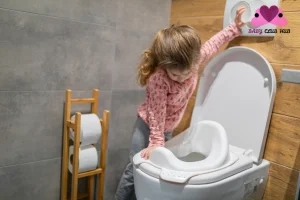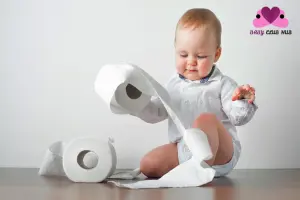What Happens If You Never Potty Train a Child? A Complete Guide for Parents
Potty training is one of the biggest milestones in a child’s early development. It’s the transition from diapers to independence and plays a huge role in hygiene, confidence, and social readiness. But what happens if a child is never potty-trained?
The short answer: it can lead to medical issues, emotional challenges, and social difficulties that may impact your child for years. In this article, we’ll explore the consequences of delaying or skipping potty training altogether, covering everything from health risks to psychological effects.
Why Potty Training Matters
Potty training isn’t just about ditching diapers. It helps children learn:
- Independence – Gaining control over bodily functions builds confidence.
- Social readiness – Preschool and kindergarten expect potty-trained kids.
- Hygiene habits – Reduce risk of infections and discomfort.
- Emotional growth – Encourages responsibility and self-pride.
Without these, children may struggle with everyday activities, friendships, and school readiness.
What Happens If You Never Potty Train a Child?
1. Medical Consequences
- Chronic Constipation & Encopresis: Children who avoid using the toilet may develop constipation. Severe cases can lead to encopresis (leakage of stool due to impaction).
- Urinary Tract Infections (UTIs): Wearing diapers for too long can increase the risk of bacteria buildup and infections.
- Delayed Bladder Control: Lack of toilet training can result in weaker bladder muscles, causing prolonged bedwetting.
- Skin Issues: Constant exposure to urine and stool can cause diaper rash, irritation, or fungal infections.
2. Developmental Delays
- Lack of Self-Control Skills: Toilet training teaches kids how to recognize body signals. Without it, children may lack awareness of their own needs.
- Delayed Self-Care Independence: Potty training is a foundation for other skills like dressing, washing hands, and eating independently.
- School Readiness Problems: Many schools require children to be toilet trained. Lack of this skill may lead to delayed enrollment or special accommodations.
3. Social and Emotional Consequences
- Embarrassment: Older children in diapers may feel ashamed around peers.
- Bullying Risks: Diaper use beyond toddler years can make children a target for teasing.
- Low Confidence: Struggling with a skill that peers have already mastered can damage self-esteem.
- Parent-Child Stress: The longer potty training is delayed, the more stressful it becomes for both parents and children.
4. Family and Financial Impact
- Extended Diaper Costs: Diapers and wipes can cost thousands of dollars if used beyond toddlerhood.
- Inconvenience: Traveling, daycare, and daily routines become harder with an untrained child.
- Childcare Challenges: Many daycare centers refuse children who are not toilet-trained.
5. Psychological Effects
- Regression in Other Skills: Children not potty-trained may lag in areas of responsibility and independence.
- Anxiety and Resistance: The older the child, the more resistant they may become to potty training, leading to stress and power struggles.
- Shame and Secrecy: Some children may hide soiled diapers out of embarrassment.
Related Article: How to Prepare Toddler for Potty Training?
Signs of Potty Training Resistance
If a child is past 3–4 years old and still refusing potty training, look for these red flags:
- Hiding to poop in diapers
- Showing no interest in the toilet
- Fear or anxiety about sitting on the potty
- Ignoring bodily cues
When Is It Too Late to Potty Train?
There’s no universal “deadline,” but most children are trained between 2 and 4 years old. If a child reaches age 5 or beyond without potty training, it’s considered a delay and may require professional support.
How to Help a Child Who Refuses Potty Training
If your child is resistant, here are some expert tips:
- Introduce Slowly – Start with potty books, videos, or watching older siblings.
- Positive Reinforcement – Use praise, stickers, or rewards instead of punishment.
- Routine Training – Place your child on the potty at regular intervals.
- Make It Fun – Choose colorful potty seats or character underwear.
- Stay Patient – Never shame or pressure your child.
- Consult a Pediatrician – If refusal continues past age 4–5, seek medical guidance.
Long-Term Effects of Never Potty Training
- Medical problems like constipation, UTIs, and bedwetting
- Delayed independence skills
- Struggles with preschool or daycare acceptance
- Social embarrassment and low self-esteem
- Financial strain on families due to prolonged diaper use
FAQs: What Happens If You Don’t Potty Train?
Q1: Can a child eventually potty train themselves without guidance?
A: Rarely. Most children need structured support, encouragement, and guidance.
Q2: What if my child has a medical condition?
A: Some children with developmental delays may need specialized potty training support from therapists.
Q3: Is it neglectful not to potty train a child?
A: While every child develops differently, avoiding potty training altogether can be harmful and may be seen as neglect if it leads to medical or emotional harm.
Conclusion
Potty training is more than a routine milestone—it’s a vital part of a child’s growth. Without it, children may face health risks, emotional struggles, social challenges, and financial strain for parents.
The good news? With patience, consistency, and the right strategies, every child can learn this essential skill. If your child shows resistance or delays, don’t panic—seek guidance from pediatricians or child development experts.







